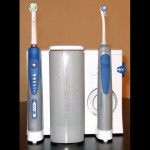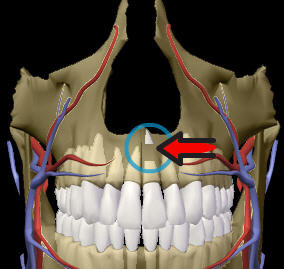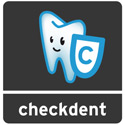Many doctors still wrongly advise against using an oral irrigator!
Whether you use an oral irrigator made by Braun, Panasonic, Waterpik, or any other manufacturer – regular use keeps your mouth healthy!
 Doctors who are not very knowledgeable about micro-biology argue that an oral irrigator washes bacteria deeper into the gum pockets. While this may sound obvious, this is actually false. First of all, bacteria can move: they have cilia, flagella which help them move around pretty quick! Second, bacteria are not dangerous in and of themselves!
Doctors who are not very knowledgeable about micro-biology argue that an oral irrigator washes bacteria deeper into the gum pockets. While this may sound obvious, this is actually false. First of all, bacteria can move: they have cilia, flagella which help them move around pretty quick! Second, bacteria are not dangerous in and of themselves!
Parodontitis and also cavities are actually caused by plaque. Plaque is organized like a little city, there are bacteria which specialize in adhering to the teeth. Other bacteria gnaw at the teeth while others are mainly responsible for transporting nutrients. Mature plaque is organized like an ant heap.
It takes mature plaque 24 hours to form, after which you run the risk of developing parodontitis and/or cavities. The longer you wait before removing the plaque, the harder it gets to remove.
You should make it a habit to remove plaque at least every 24 hours,but using a toothbrush you can only do that above the gums, while the oral irrigator also reaches the areas just below the gums – in the sulcus, and also between the teeth.
Used once a day in combination with regular brushing, the oral irrigator helps to keep your mouth healthy! Do not be afraid if your gums start to bleed a little and hurt at the beginning, this will stop eventually, just keep cleaning!
VN:F [1.9.22_1171]
Rating: 4.0/5 (1 vote cast)
VN:F [1.9.22_1171]
 If root treatment is not performed correctly, or complications arise, or if necessary treatment is not performed at all, then the dental nerve causes an inflammation in the bone, leading to a cyst in the root. This need not always be accompanied by pain, however. More on this topic here.
If root treatment is not performed correctly, or complications arise, or if necessary treatment is not performed at all, then the dental nerve causes an inflammation in the bone, leading to a cyst in the root. This need not always be accompanied by pain, however. More on this topic here.




